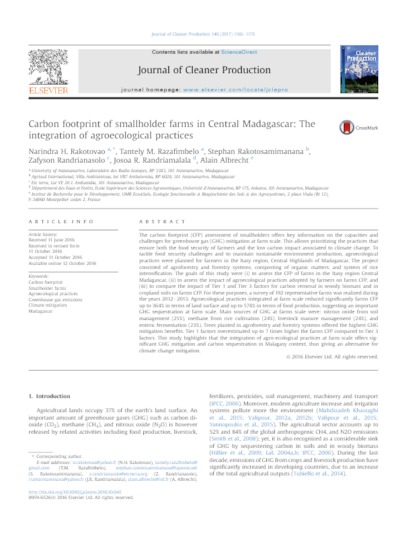The carbon footprint (CFP) assessment of smallholders offers key information on the capacities and challenges for greenhouse gas (GHG) mitigation at farm scale. This allows prioritizing the practices that ensure both the food security of farmers and the low carbon impact associated to climate change. To tackle food security challenges and to maintain sustainable environment production, agroecological practices were planned for farmers in the Itasy region, Central Highlands of Madagascar. The project consisted of agroforestry and forestry systems, composting of organic matters, and system of rice intensification. The goals of this study were (i) to assess the CFP of farms in the Itasy region Central Madagascar, (ii) to assess the impact of agroecological practices adopted by farmers on farms CFP, and (iii) to compare the impact of Tier 1 and Tier 3 factors for carbon removal in woody biomass and in cropland soils on farms CFP. For these purposes, a survey of 192 representative farms was realized during the yea

